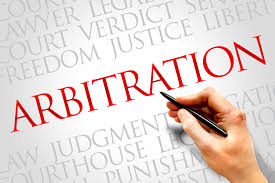Introduction
India is well known for its judiciary and its constitution. But when it comes to the speed and the fast decisions, somewhere the game of judiciary fades away. India is always haunted by pending cases. Coming the statistics to as an evidence to the previous statement, there are 9.2 million cases pending in the District courts, 3.7 million cases pending in the High Courts of India in states like Allahabad, Rajasthan, Madhya Pradesh, Patna, Orissa, Bombay. The total of 37.7 million cases pending including high courts, district and taluka courts across India.[1] The main reason for the pendency of the cases is the judicial vacancy. Due to judicial vacancy there are cases pending. For example, U.P where there are the greatest number of judicial vacancies, the numbers pending are highest in the Allahabad High Court, U.P.
1. Nature and subject matter of the dispute i.e. if can be solved by arbitral tribunals or fall under the court jurisdiction.
2. The list of disputes should include specifically the dispute to be solved by arbitration
3. Identification of the dispute in the arbitration joint list
The dispute arising out of rights in personam[4] are acceptable to be arbitrable, even if are a subset of rights in rem and not which arise out of rights in rem.[5] The primary nature of the IP rights is right in rem, with that attached is also a minute presence of right in personam (licencing agreements or enforcing IPR). The farrago continues in this matter.
April 12, 2016, Eros International Media Limited v. Telemax Links India Pvt. Ltd. Bombay High Court held that disputes arising out of breach of contractual terms of licencing or any other are arbitrable. It shouldn’t be held directly that non-arbitrability of IP rights is equal to non-applicability of all the IP disputes in arbitration.
The confidential and sensitive information which is kept secret and confidential in the arbitration process, consists of high-stake trade secrets, proprietary rights over technology or intellectual property[7].
The crucialness of the clauses dealing in the scope of arbitration, the legislations which control the arbitration and the qualifications, at the time of draft making of the arbitration clauses in IP and SEP licensing agreements. As held and discussed in Booz-Allen & Hamilton Inc. v. SBI Home Finance Ltd, regarding which 3 facets were discussed, and that the clauses should include, the ones which cover all the claims in the issue, as the drafting which is mediocre in its approach ends up in the hands of litigation. The sides or parties which are included in the case are free to select their rules of arbitration proceedings. This is because there are certain institutions which have specially created rules and regulation which are specifically for Intellectual property.
- American Arbitration Association – Resolutions of Patent Disputes | Supplementary rules[8].
- World Intellectual Property Organization (WIPO) – WIPO Arbitration Rules[9]
The parties are free to choose their own rules which control and procedure of the arbitration[10]
The freedom to chose your own arbitrator is helpful as the importance and requirement of the arbitrator who is well versed with IP laws, SEP and fair, reasonable and non-discriminatory (FRAND) practices.
The situation in which the licensee has acted beyond the limit and scope of the agreement of licencing of patent, the defence which will put will be the following:
1. Approaching Intellectual Property Appellate Board (IPAB) with the objective of the revocation petition u/s 64 (1) Indian Patent Act, 1970.
2. Filing a counterclaim in the infringement suit
The tribunal cannot decide on the defence put up; it is the IPAB which will decide the same. Regarding the counterclaim, the high court alone can be taking it into its control. This is a problem for the respondents because they would not have a wide scope, rather will have a limited scope in their defence in the arbitration. The arbitration will be superfluous even if hypothetically they get the opportunity.
There are two ideal types in the field of arbitration for India, one is of Hong Kong, the other is of Switzerland.
Hong Kong – Any dispute (infringement, ownership, validity enforceability, scope, duration, transaction, compensation) is arbitrable which is related to Intellectual Property Rights. The third parties are not subject to any awards, only the party in disputes. In case if he disputes is between a party and a third party then the award will not affect the subsequent proceedings.
The empirical side will be chosen by India and will boil down to the model of Hong Kong, keeping the third parties outside.
References
[1] National Judicial Data Grid (NJDG)
[2] M/S Icomm Tele Ltd. vs Punjab State Water Supply And, 11 March, 2019
[4] A right which is imposed upon determinate individuals (Single person or group)
[5] A right in rem is available against the world at large
[6] https://www.wipo.int/amc/en/arbitration/why-is-arb.html
[7] https://www.natlawreview.com/article/growing-importance-international-arbitration-intellectual-property-disputes
[8]https://www.adr.org/sites/default/files/Resolution%20of%20Patent%20Disputes%20Supplementary%20Rules.pdf
[9] https://www.wipo.int/amc/en/arbitration/rules/index.html
[10] https://uk.practicallaw.thomsonreuters.com/9-502-0625?__lrTS=20171014041831054&transitionType=Default&contextData=(sc.Default)&firstPage=true&bhcp=1
[11] https://www.lexology.com/library/detail.aspx?g=5b72f5e7-1b20-45a8-9351-3df4d1f6f6f2#:~:text=Hence%2C%20an%20arbitral%20award%20declaring,order%20to%20the%20same%20effect
Image Source



Very well explained! Keep it up!
Thank you so much!